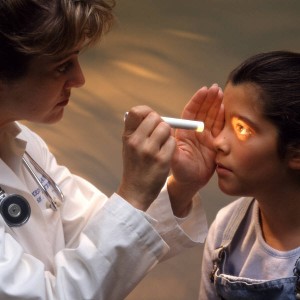The Different Types of Nursing Programs
March 26, 2009 by Rn2b
Filed under Nurse Practitioner (NP), Nurse Programs
The Different Types of Nursing Programs
Nursing Education is not limited, in fact almost every universities and colleges offer Bachelor of Science in Nursing since a lot of people get sick everyday and a many of them get confined in hospitals and nursing homes for medical attention.
If you want to work as a nurse in hospitals and not just houses for care giving, then you should get a diploma that will allow and certify you to work in hospitals. Nowadays, those people who want to work in hospitals as a nurse get registered. They take a nursing licensure exam and if they pass they get to be a registered Nurse. Registered nurses are the ones who assist doctors and manage equipments in the hospitals; their task is not just limited to care giving alone. Most of the time, only those who have studied a four-year college program in nursing gets to pass the licensure examination for registered nurses so be sure you have the proper nursing education to back you up.
If you want to go farther with your nursing education, I suggest you take up a masters program in the fields of nursing so that you can be an advanced practice registered nurse. This means you are able to specialize in a certain field therefore attaining levels such as Certified Nurse Midwife, Certified Nurse Specialist for Psychiatric/Mental Health, and a lot more.
If you have to heart in giving care to other people, then taking the different nursing programs will probably do your career good.
The Highest Level of Nursing Practice
March 24, 2009 by Rn2b
Filed under General Nurse Information, Nurse Practitioner (NP)
The Highest Level of Nursing Practice
The topmost rank among the levels of nursing practice is to have a PhD; you can only attain this by studying a doctorate degree in Nursing. You cannot just attain this just by skipping other degrees, you should first consider taking a bachelor’s degree and a master’s degree before proceeding to a doctorate degree.
Of course if you’re a nurse, it feels better to be a RN or a registered nurse; you can get that after passing the nursing licensure exam that is offered for graduating nursing students. But wouldn’t it feel so much better and more prestigious if you were carrying a PhD badge? To have a PhD is never easy; it entails determination, discipline and diligence. If you are planning to take a Doctor of Nursing Practice level, be sure you know what you’re getting in to because graduating with a PhD is not as easy as bachelor’s and master’s degree. The course normally includes clinical characteristic of nursing than academic study. This means that you go under advanced leadership practice; you apply what you’ve learned for you to become an advanced practice nurses.
There are several doctorate practices for nursing. You can take Doctors of Medicine or MD, or if you want to be more specific and you want to be a dentist, then I suggest you take Doctors of Dental Medicine. Other schools who offer doctorate degree have Doctor of Pharmacy, Doctors of Psychology, and a lot more. It’s your choice what you want to excel in. Surely, to have a doctorate degree will earn you respect and recognition in your workplace and everywhere you go.
What is an Independent Nursing Practice
December 28, 2008 by Rn2b
Filed under General Nurse Information, Nurse Practitioner (NP), Types of Nurses
What is Independent Nursing Practice?
How would you like to hang at your gate or window a sign bearing your name and the words “Independent Nursing Practitioner?” As the term implies, “independent” means the nurse is self-employed and provides professional nursing services to clients/parents and their families. While some independent nursing practitioners set up their clinics near a hospital, most of them are community-based. These nurses reach out and offer theirs services rather than expect clients to seek their help. They perform both independent and collaborative roles. Health care assessment, formulating plans for health maintenance, prevention strategies, continuation of supportive activities in critical and complex health problems are all within the scope of nursing practice. They make referrals and collaborate with physicians and other disciplines as needed by the client or family.
Independent nurse practitioners are accountable for their decisions. Whether their role is independent or collaborative, it is based on the fact that each health care discipline offers an area of knowledge and expertise. Collaborative work is needed for effective, efficient, and economical care. It is essential therefore that independent nurse practitioners acquire working knowledge of the skills and expertise of other health workers.
The growing interest in independent nursing practice is expected to very much contribute to the improvement of the existing health care delivery system. It is time that we asses our own resources to explore this new field of practice. But the initial preparation for this kind of practice should have been incorporated first in nursing programs before nurses can assume the role effectively.

